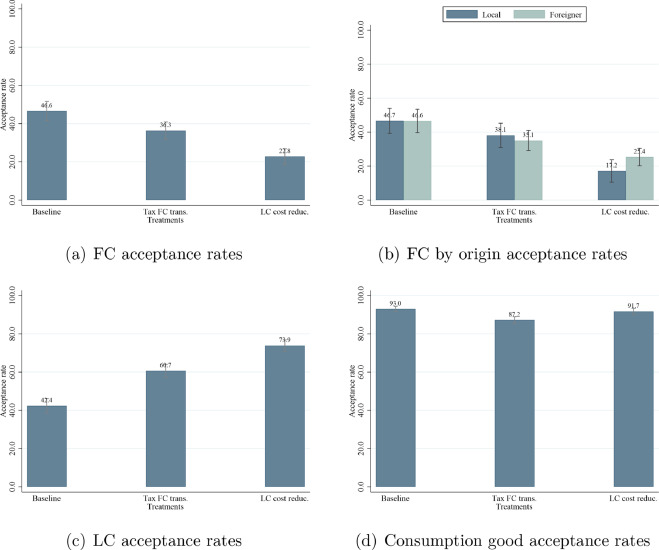Selected Work in Progress
-
Welfare Effects of Dollar Currency Invoicing: The Case of Durable Goods
Abstract.- How does dollar pricing of durable goods impact household welfare in small open economies? We study the optimal response of households to durable goods listed in dollars and analyze the welfare implications. We build over the canonical lumpy adjustment model by adding exposure to exchange rate risk. This new decision layer constraints a subset of households, who would have adjusted otherwise. We compute the main moments based on the Uruguayan economy and its dual currency system.
-
Chinese New Year, Culture, and Dynamics: The Case of Cherry Picking
with Magdalena MartinAbstract.- We study...
Publications
-
Policies for transactional de-dollarization: A laboratory study
With David Florian, Kristian López Vargas, and Valeria Morales Vasquez
Journal of Economic Behavior and Organization, Vol 200, August 2022.Abstract.- This study examines de-dollarization policies in small open economies, focusing on two key interventions: taxing domestic transactions in foreign currency and reducing the storage cost of local currency.
Building on Matsuyama et al. (1993) and experiments, the research identifies a new regime where foreign currency is used only for international trade, while local currency dominates domestic transactions. The findings suggest that both policies effectively promote de-dollarization by reducing foreign currency usage and reinforcing local currency adoption.
Policy Articles (in Spanish)
Modelo de Proyección Trimestral: Una actualización hasta 2019
Banco Central de Reserva del Perú, Issue 011, 2022.Proyecciones inmediatas y de corto plazo para la actividad económica en tiempos de la pandemia del COVID-19
Revista Moneda, Issue 187, 2021.